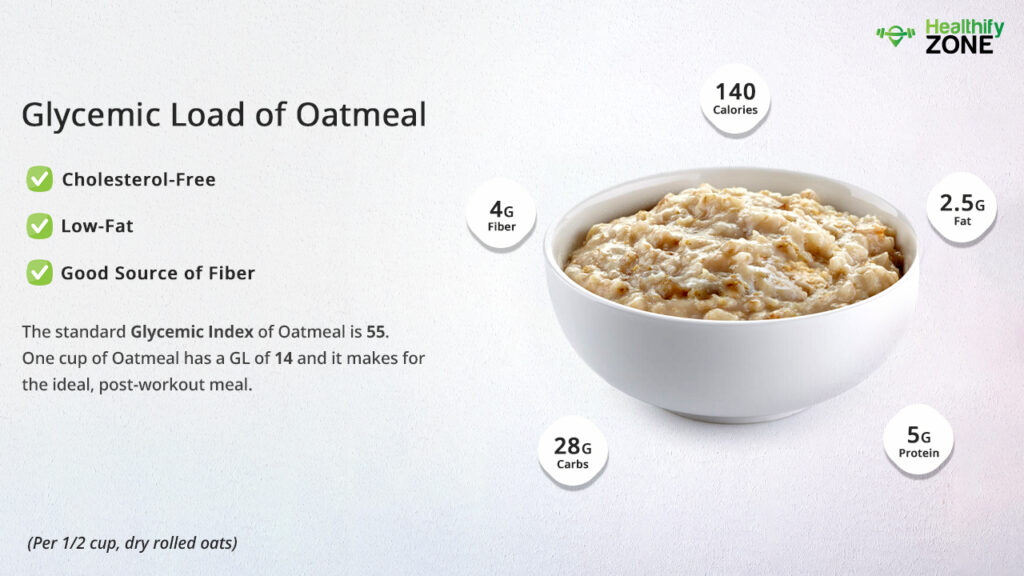The Glycemic Index of Oats is 55. Oatmeal is a hot breakfast made from groats that have been broken down. To make it smooth and enjoyable to eat, people combine it with hot water or milk. Diabetes patients have trouble using or generating insulin.
They must be careful of carbohydrate-rich diets because they quickly convert to sugars. Increases in blood sugar and insulin levels may result from this. One reason why persons with diabetes frequently search for cereals with fewer carbohydrates is because of this. A person with diabetes may benefit from including whole grain oatmeal in their diet. Oatmeal has a low GI score, and its beneficial components and soluble fiber may help people manage their blood sugar levels and other diabetes-related signs. Oats and oatmeal can be incorporated into the diet in a variety of ways.
Are Oats Safe for Diabetes?
Oatmeal has advantages and disadvantages for managing diabetes. Due to its moderate to high fiber content and reduced glycemic index, it can help control blood sugar levels. Because it can decrease cholesterol and has soluble fiber, it is heart-healthy. Substituting for other breakfast items high in carbohydrates may lessen the need for insulin shots. It can be a quick and simple supper if prepared in advance. It has a mediocre amount of fiber, which helps you stay fuller for longer and manage your weight. It provides reliable long-term energy.

Are Oats Suitable for Weight Loss?
Yes, oats are suitable for weight loss. Oats are the ideal breakfast food for anyone on a diet since they are inexpensive, packed with nutrients, and endlessly adaptable. But the advantages of this cereal actually depend a lot on how you serve it.
Add some blueberries, raspberries, strawberries, or blackberries in place of sugar if you want your oats to be sweet. Additionally, oats slow down the bloodstream’s carbohydrate absorption and stop our bodies from storing too much fat.
By creating a gel-like solution in the gut, oats help you maintain your weight by causing you to feel full for a longer period of time and consume fewer calories. Oats are one of the healthiest grains you can eat to maintain your ideal weight because they are a rich source of protein, vitamins, antioxidants, and minerals.
What is the Best time to Consume Oats?
The oats acquire more nutrients during the overnight soaking process because the starch and acid in the oats organically break down. Overnight soaking also improves digestion since the oats’ starch naturally breaks down. It is significantly simpler to eat in the morning due to its sloppy texture.
The Bottom Line: The Glycemic Index of Oats is 55.
Diabetes is a metabolic disorder that impacts the body’s ability to make or use insulin. Due to this, keeping blood sugar levels in a reasonable range is challenging, which is essential for the well-being of people with diabetes. Since carbohydrates directly impact blood sugar, it’s crucial to limit the quantity consumed at one time when managing blood sugar.
Additionally, it’s critical to choose complex carbohydrates with high fiber content over processed and refined carbohydrates with added sugar. With the aid of your healthcare physician, you should determine your own carb intake goals.
This implies that what you consume is very important. Eating foods low in harmful fat and sugar and high in fiber and nutrients will help you maintain a balanced blood sugar level while also enhancing your general health. As long as the portion is regulated, oatmeal has a number of health advantages and can be a fantastic go-to dish for people with diabetes. About 30 g of carbohydrates are found in one cup of cooked oats, which can be included in a diabetic person’s healthy diet plan.